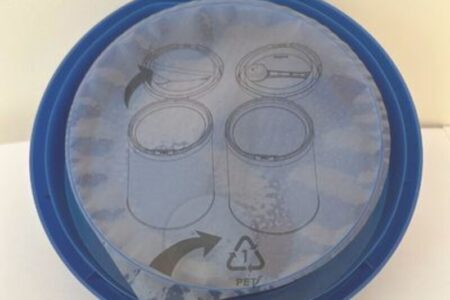‘Use-by’ innovation being tested at the University of Chester

A company developing a food freshness solution is being supported in its research and development work by the Institute of Food Science and Innovation at the University of Chester, UK.
Bump Mark is a bio-responsive tactile expiry label, which has been designed and invented by industrial designer Solveiga Pakštaitė of Design By Sol, a food tech start-up company based in London.
The idea originally came about as a way for people with visual impairments to check the freshness of their food. It is expected to cut food waste dramatically, allowing consumers to confirm by touch – rather than reading – the expiry date, and determining whether their food has gone off.
Patent pending, it also won the Mayor of London’s Low Carbon prize last year and more recently the Hawley Award for sustainable engineering.
Gelatin has been used for the first version of the product to help determine when meat products go off. Because gelatin is a natural food product, which is high in protein, it decays at the same rate as other protein foods. The gelatin is set over a bumpy plastic sheet, with an additional layer of plastic on top, acting as a smart label on food packaging. Because gelatin is solid when it’s set, the label is smooth to the touch when food is fresh. As it decays, it turns to liquid, thus revealing the bumps underneath – which is indicative of the food expiring. In other words, Bump Mark mimics the biochemical processes that are going on inside the food package.
The team at Design By Sol is now completing the research and development to bring this innovation to supermarkets, which is where the Institute of Food Science and Innovation at the University of Chester has been able to help.
With the combined advantages of the facilities at the NoWFOOD Centre and the academic expertise of scientists within the Institute, Design By Sol has employed two Master’s students from Italy as interns to carry out its product development work under the supervision of Design By Sol’s research and development lead Mandy Zammit. Using the university’s multidisciplinary environment, including microbiology and hydrocolloid laboratories, Martina Poletti from Wageningen University in the Netherlands and Giorgia Raci from Turin University, have been tracking the temperature changes of gelatin during storage and assessing how the technology will work in the mass market.
The development of the product is being supported by the Climate-KIC and Central Research Laboratory start-up accelerator programmes.



